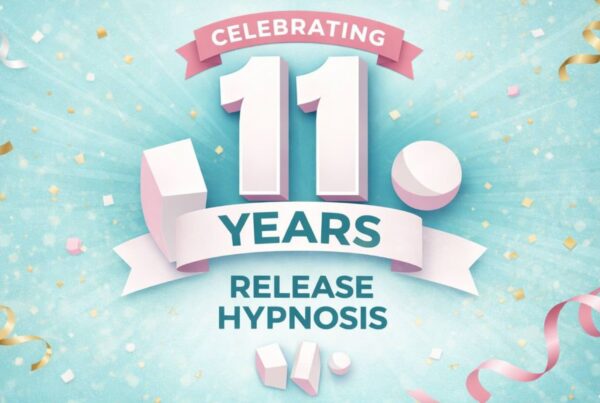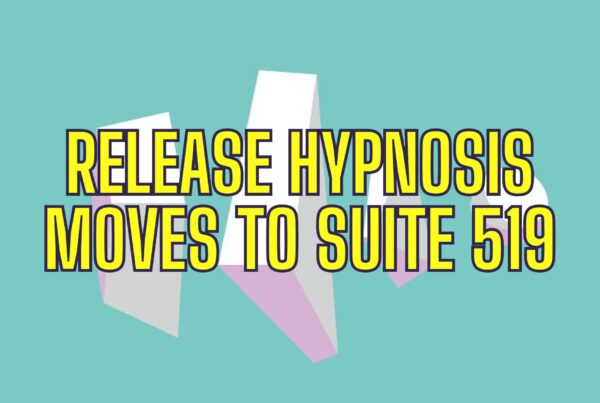Hypnotherapy vs Traditional Therapy Comparison
Most hypnotists will tell you that many people don’t tend to get to hypnotherapist until they’re tried more traditional form of psychotherapy, such as Cognitive Behaviour Therapy (CBT). While traditional therapy focuses on conscious thought and behavior change, hypnotherapy offers a unique path to healing by accessing the subconscious mind. But what are the differences and similarities between these two approaches, and how effective is hypnotherapy in comparison to traditional therapy? In this blog, we explore Hypnotherapy vs Traditional Therapy Comparison.
What is Hypnotherapy?
Hypnotherapy uses guided relaxation, concentration, and focused attention to achieve a heightened state of awareness, often referred to as a “trance.” This altered state of consciousness is used to explore the subconscious mind. Hypnotherapy has proven effective in various applications, such as treating phobias, anxiety, addiction, and even chronic pain. Its goal is to “reach deeper”, subconscious layers of the mind, allowing people to address and change underlying patterns of behavior that they may not be fully aware of in their conscious state.
For instance, some may identify limiting beliefs, deep-seated thoughts that inhibit personal growth, more easily under hypnosis. Examples include the lack of self-love, worth, or confidence. Hypnotherapy allows these restrictive beliefs to be challenged and reframed into healthier mental patterns.
Is Hypnotherapy Effective?
Despite popular misconceptions about hypnosis (thanks to its use in entertainment), scientific evidence supports its effectiveness. Studies have shown that hypnotherapy can significantly help with issues such as pain management, anxiety, smoking cessation, and weight loss. Harvard Medical School’s Program in Placebo Studies has found that combining Cognitive Behavioral Therapy (CBT) with hypnosis can lead to more significant and lasting outcomes, especially in weight loss.
For individuals motivated to change and open to the process, hypnotherapy has proven to be effective. Hypnotherapists often describe it as “meditation with a goal.” Just as in meditation, the hypnotic subject enters a deep state of relaxation but is guided toward specific objectives, such as breaking habits or releasing phobias.
How Does Hypnotherapy Compare to Traditional Therapy?
Traditional therapy, such as CBT, focuses on identifying and changing negative thought patterns consciously. It is structured, goal-oriented, and based on the premise that our thoughts influence our emotions and behaviors. It helps patients challenge irrational beliefs, develop coping mechanisms, and gradually change their behavior over time.
On the other hand, hypnotherapy delves into the subconscious mind, where many of our automatic thoughts, habits, and fears reside. Hypnotherapy allows patients to address these issues more directly. Hypnotherapy can be particularly effective for individuals struggling with habits that seem ingrained beyond conscious control—like smoking or overeating.
The similarity between both methods lies in their shared goal: to improve mental well-being and reduce unhealthy habits. Both hypnotherapy and CBT have been shown to work effectively together, as seen in research on weight loss and smoking cessation, where combining both treatments yielded better results than using either approach alone.
Applications of Hypnotherapy in Mental Health
- Anxiety and Stress: Hypnotherapy helps reduce stress and anxiety by relaxing the mind and body. This allows patients to focus on resolving the root causes of their anxiety in a safe and controlled environment.
- Phobias: By accessing subconscious fears, patients are able to reframe their emotional response to specific triggers.
- Chronic Pain: Hypnotherapy is increasingly used as an adjunct therapy to manage chronic pain, helping patients gain control over pain signals through focused relaxation.
- Addictions: From smoking to alcohol or drug use, hypnotherapy addresses the subconscious drivers of addiction, making it easier to break the cycle.
How Hypnotherapy Works: The Science Behind It
Hypnotherapy works by guiding patients into the theta state, a deep relaxation mode where the subconscious mind is more open to suggestion. The brain operates in four key states, each serving different mental functions:
- Beta State: Normal consciousness, alert and focused.
- Alpha State: Relaxed awareness, often associated with daydreaming or light meditation.
- Theta State: A deeper meditative state, where patients are highly suggestible and able to access subconscious memories, beliefs, and emotions.
- Delta State: The deepest state of sleep.
In hypnotherapy, the therapist uses the theta state to help patients uncover their subconscious thoughts and beliefs, allowing them to change ingrained habits or mental patterns. It’s here where individuals can overcome deeply rooted fears, phobias, or self-imposed limitations.
Limiting Beliefs: How Hypnotherapy Can Help
Limiting beliefs are negative thoughts that hold individuals back from reaching their full potential. Often, these beliefs are buried in the subconscious mind and manifest as self-sabotaging behavior. Examples of limiting beliefs include feelings of unworthiness or the conviction that success is unattainable. Hypnotherapy is one of the most effective methods to access and dismantle these beliefs.
During a hypnotherapy session, the therapist guides the hypnotic subject to focus on specific areas of struggle. By tapping into the subconscious mind, hypnotherapy allows these limiting beliefs to surface, helping the individual identify and replace them with more empowering thoughts.
The Role of Traditional Therapy in Identifying Limiting Beliefs
While hypnotherapy is highly effective for working directly with the subconscious mind, traditional therapies like Cognitive Behavioral Therapy (CBT) and Acceptance and Commitment Therapy (ACT) can also help individuals challenge limiting beliefs. These therapies use a more structured approach to identify negative thought patterns and replace them with healthier alternatives. For example, CBT focuses on the idea that by changing our thoughts, we can change our behaviors and emotions.
ACT, on the other hand, emphasises mindfulness and acceptance as key components for overcoming limiting beliefs. By learning to accept negative thoughts without attaching to them, individuals can move toward their core values and goals with greater confidence.
Final Thoughts: Hypnotherapy vs Traditional Therapy Comparison
For many individuals, combining both hypnotherapy and traditional therapy can be a powerful way to achieve lasting mental health improvements. While traditional therapy helps people understand and change their conscious thoughts and behaviors, hypnotherapy can accelerate progress by addressing the deeper, subconscious patterns that drive those behaviors. Together, these therapies offer a well-rounded approach to mental health treatment.
Hypnotherapy and traditional therapy both have their strengths. Whether working on a conscious or subconscious level, both forms of treatment can help individuals break free from limiting beliefs, harmful habits, or unresolved emotional issues. When applied together, these therapies create a holistic path to healing that addresses the mind on every level.
Release Hypnosis Melbourne Hypnotherapy
Since 2015, Lawrence Akers has been working under the name Release Hypnosis offering Hypnotherapy and ACT based work to the people of Melbourne or an online service. Based on St Kilda Rd, Release Hypnosis is an easy and convenient location to get to and accessible by the ANZAC station train and tram stop. Release Hypnosis can help with a wide range of presenting issues, and I offer a free 30 minute no obligation discovery call for those who are unsure if hypnotherapy is the right way forward for them.
Book Your FREE 30 Minute Consultation With Release Hypnosis NOW!
You may also like to read:
Exploring Content-Free Hypnotherapy
The Journey to Becoming a Better Hypnotic Subject
Best Hypnotherapy Resources 2023: Release Hypnosis Top Blogs
What Is The Success Rate of Hypnosis?
Release Hypnosis Melbourne Hypnotherapy is accessible for people in: Abbotsford, Armadale, Albert Park, Balwyn, Bentleigh, Black Rock, Box Hill, Brighton, Brunswick, Bulleen, Bundoora, Camberwell, Canterbury, Carnegie, Caulfield, Chadstone, Cheltenham, Clayton, Coburg, Collingwood, Deer Park, Doncaster, Elsternwick, Eltham, Elwood, Epping, Essendon, Fairfield, Fitzroy, Footscray, Glen Iris, Glen Waverley, Glenhuntly, Greensborough, Hampton, Hawthorn, Heidelberg, Highet, Ivanhoe, Kew, Kooyong, Lalor, Laverton, Lower, Plenty, Macleod, Malvern, Middle Park, Moonee Ponds, Melbourne, Moorabbin, Mount Waverley, Murrumbeena, Northcote, Oakleigh, Ormond, Parkville, Pascoe Vale, Port Melbourne, Prahran, Preston, Richmond, Rosana, Sandringham, South Yarra, South Melbourne, Spotswood, St Albans, St Kilda, Surrey Hills, Templestowe, Thornbury, Toorak, Tullamarine, Williamstown, Yarraville, North Melbourne, Windsor, East Melbourne, Melbourne, Melbourne CBD, Melbourne 3004








